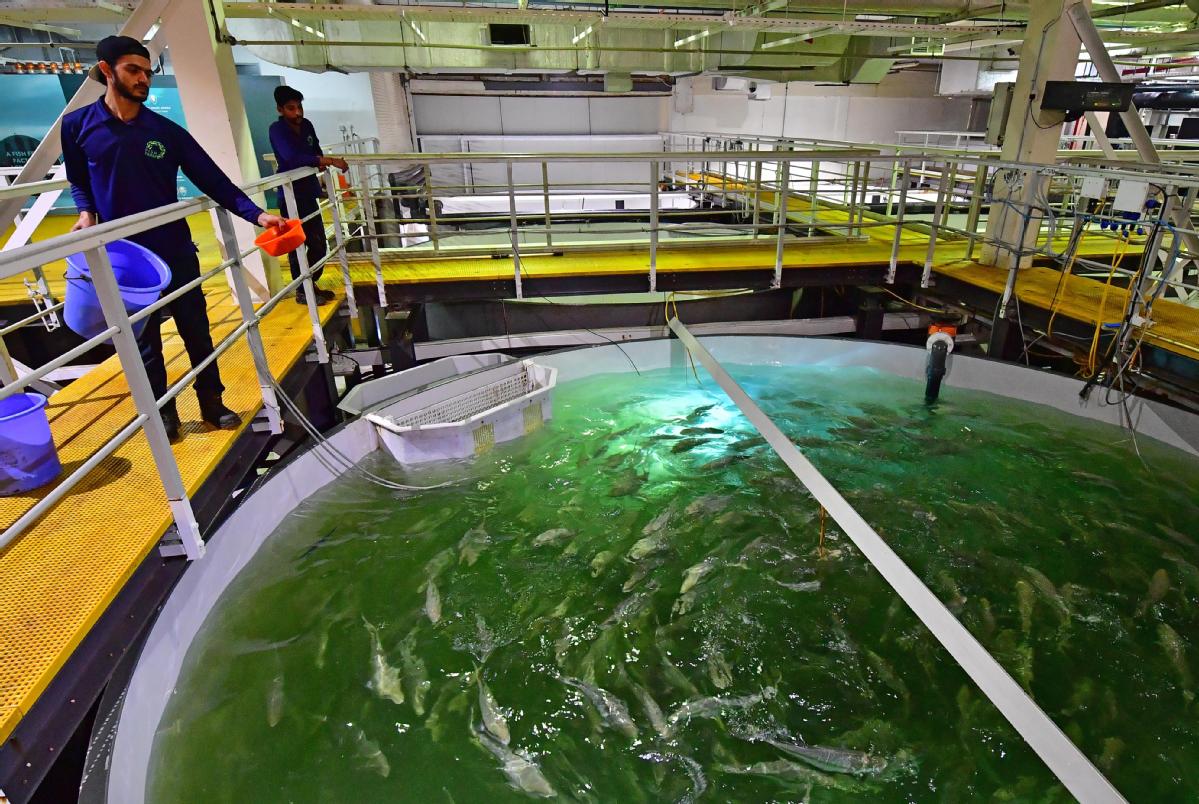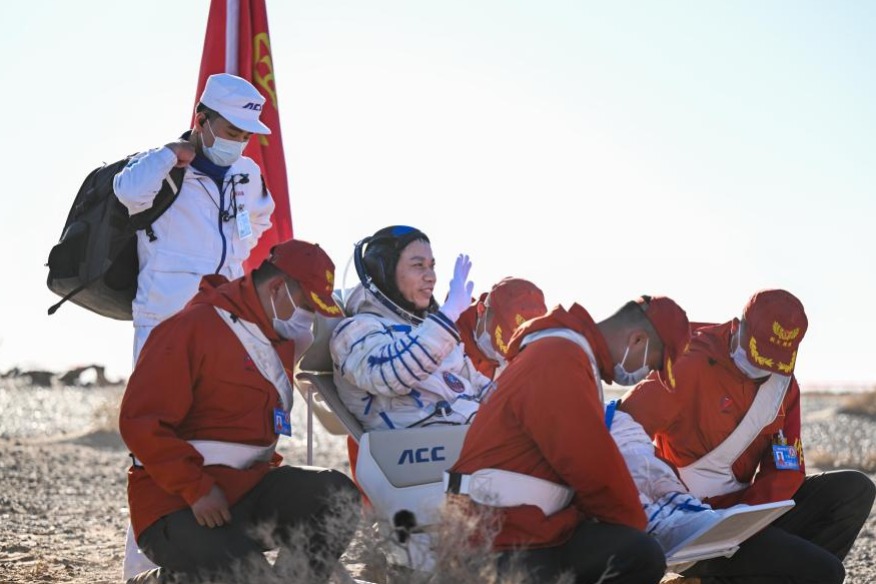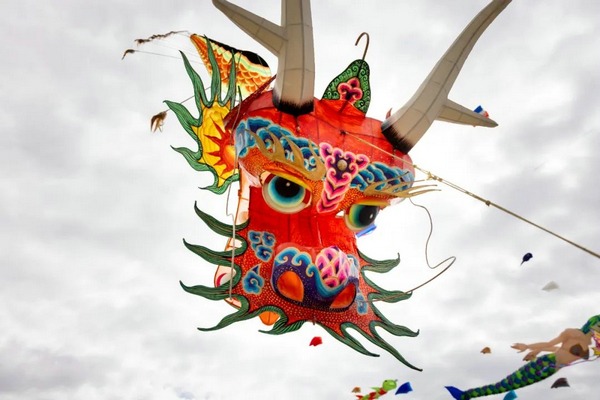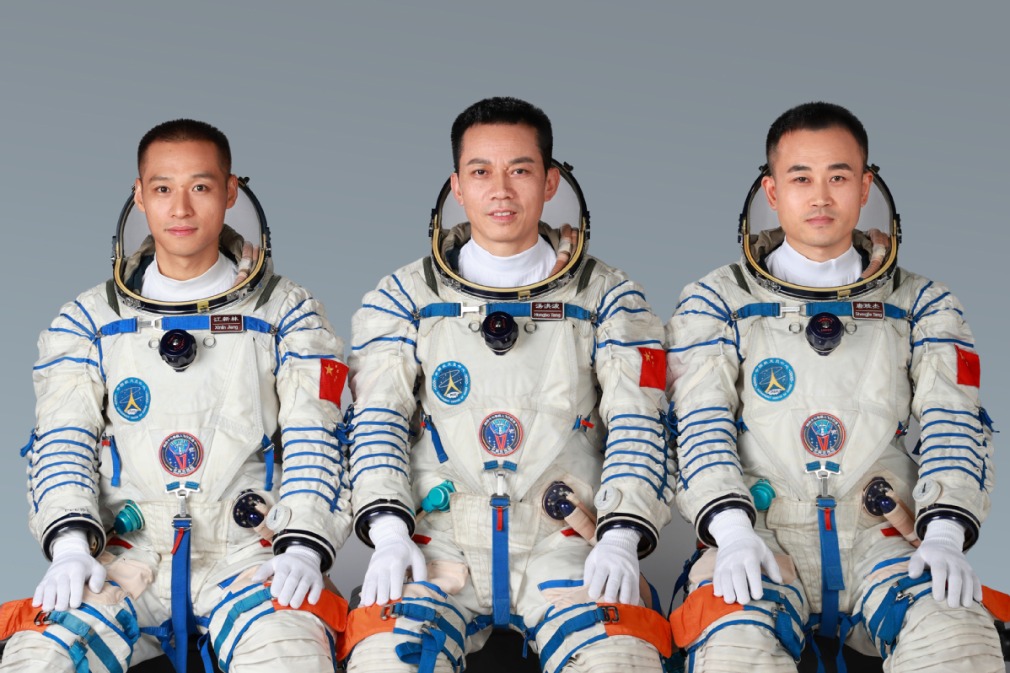Salmon farming thrives in Dubai desert
China Daily | Updated: 2019-11-20 09:06

DUBAI - From a control room in the middle of Dubai's desert, the sunrises and sunsets of Norway and the cool currents of the Atlantic are recreated for the benefit of thousands of salmon raised in water tanks despite searing heat outside.
Dubai is no stranger to ambitious projects, with a no-limits approach that has seen a palm-shaped island built off its coast, and a full-scale ski slope created inside a shopping mall.
But the farming of salmon in the desert is "something that no one could have imagined", said Bader bin Mubarak, chief executive of Fish Farm. "This is exactly what we're doing in Dubai."
Inside the facility, waters flow and temperatures fluctuate to create the most desirable conditions for the salmon living in four vast tanks.
"We provide for them a sunrise, sunset, tide, a strong current or a simple river current - and we have deep waters and shallow waters," Mubarak explained.
Even for a city known for its extravagant ventures, building Fish Farm, located along the southern border of the emirate, was a challenging endeavor.
Salmon usually live in cold waters such as those in and off Iceland, Norway, Scotland and Alaska - which is why the farming of Atlantic salmon in a country where temperatures can reach up to 45 C is a stretch, to say the least.
"Creating the (right) environment for the salmon was the hardest thing we faced," Mubarak said.
"But we came up with the idea of dark water that resembles deep water, a strong current like the ocean with the same salinity and temperature of the Atlantic."
Fish Farm bought nearly 40,000 fingerlings - or juvenile fish - from a hatchery in Scotland and thousands more eggs from Iceland to raise in open tanks in Dubai's southern district of Jebel Ali.
Salmon are born in freshwater but live in salt water for much of their lives before returning to freshwater to spawn.
At their home in the United Arab Emirates, the tanks are filled with seawater that is cleaned and filtered.
Established in 2013, Fish Farm produces 10,000 to 15,000 kilograms of salmon every month.
Mubarak said that because of the technical challenge, raising salmon is still the "greatest production" of the farm. It supplies the fish to Dubai and the rest of the emirates, where the populations include millions of expatriates.
Another goal is to be environmentally friendly and, in a move also motivated by the high cost of electricity, Fish Farm plans to switch to solar power.
The ecological pros and cons of farming fish on land, compared to raising them in rivers and seas, are hotly debated, as is the alternative of harvesting wild fish.
"There are animal welfare concerns about keeping fish whose natural behavior is to swim freely in seas and rivers in closed tanks," said Jessica Sinclair Taylor, from Feedback Global, a London-based environmental group.
"There are also concerns about the energy requirements and therefore carbon emissions."
Agence France-Presse
























